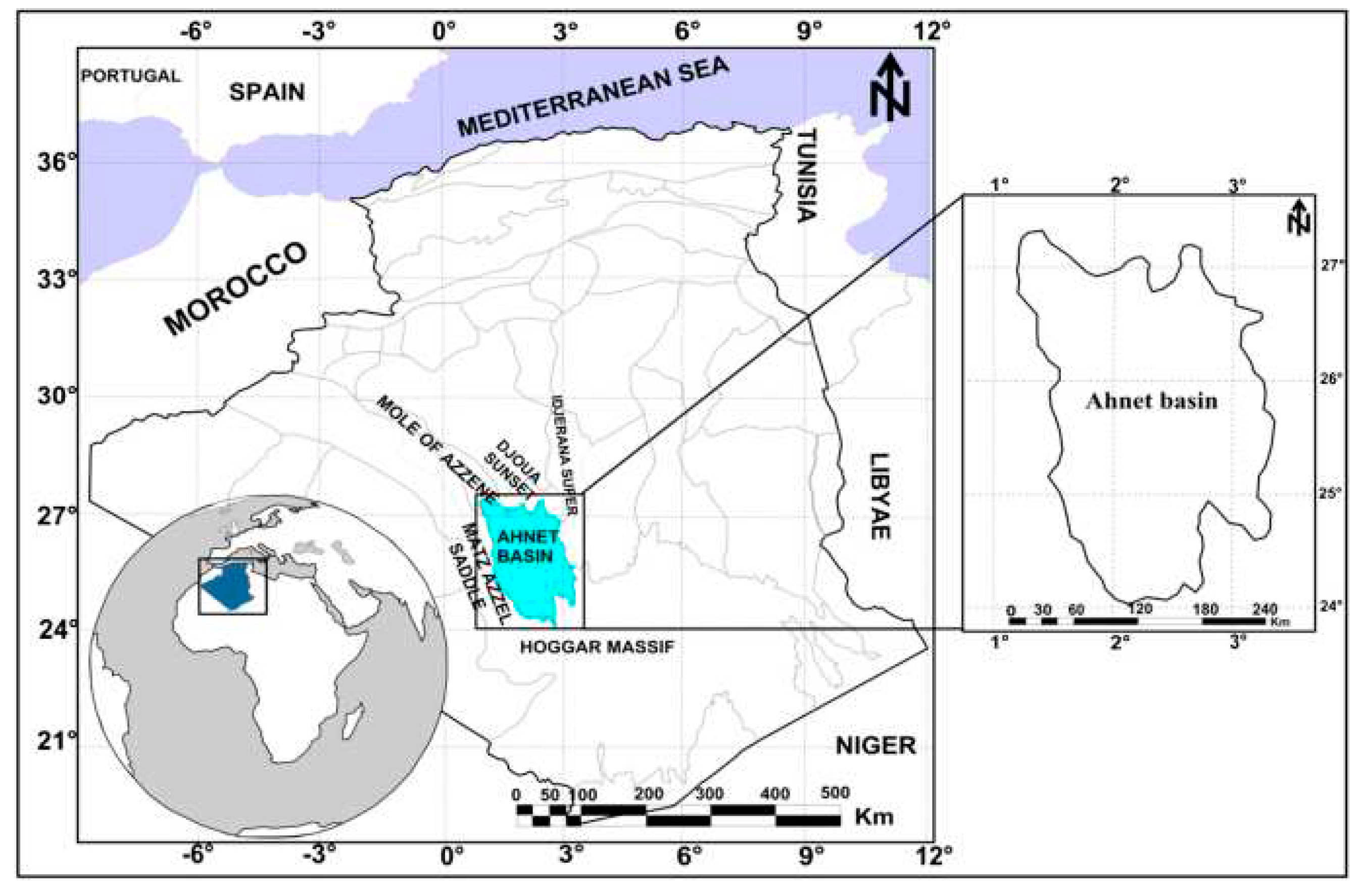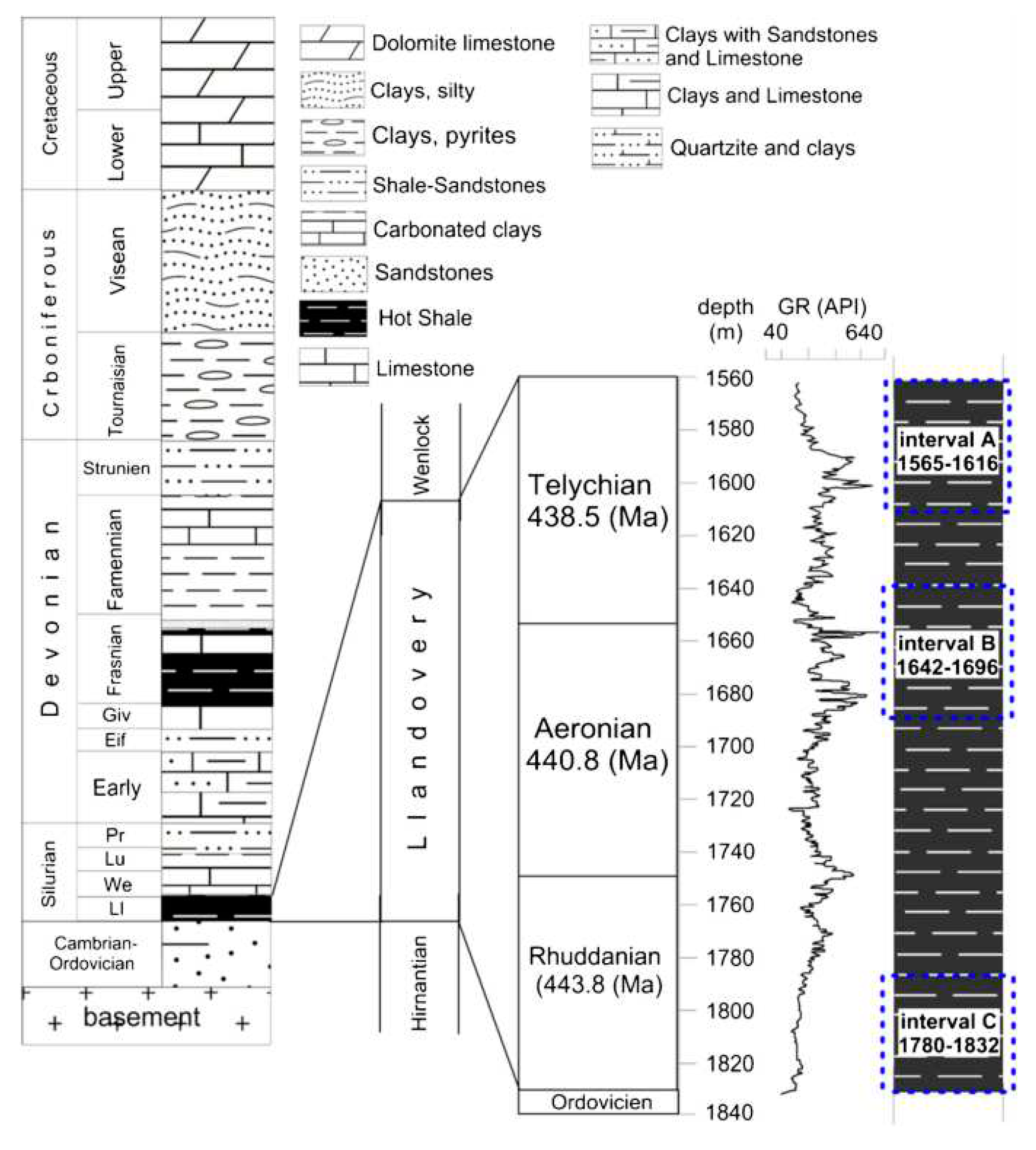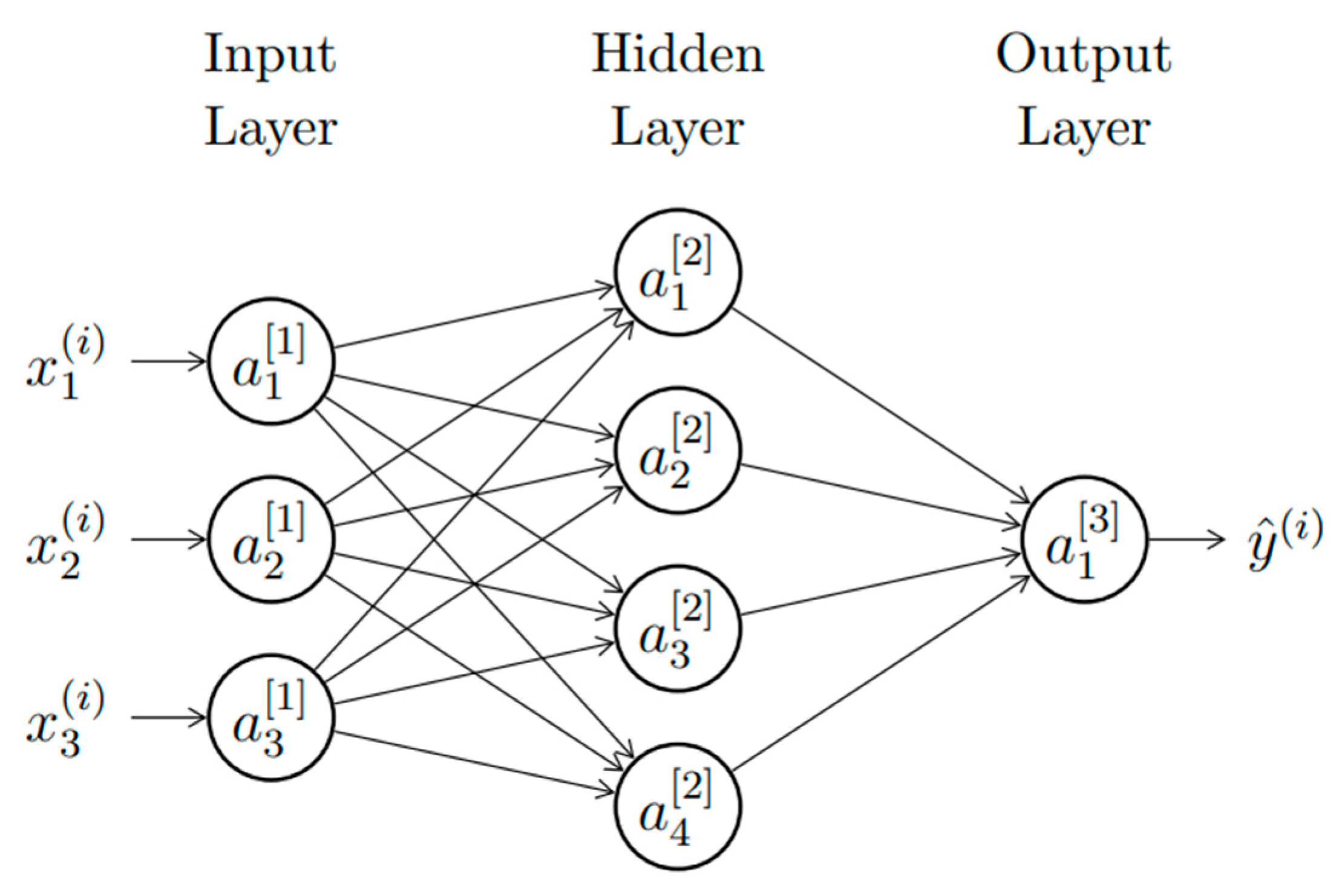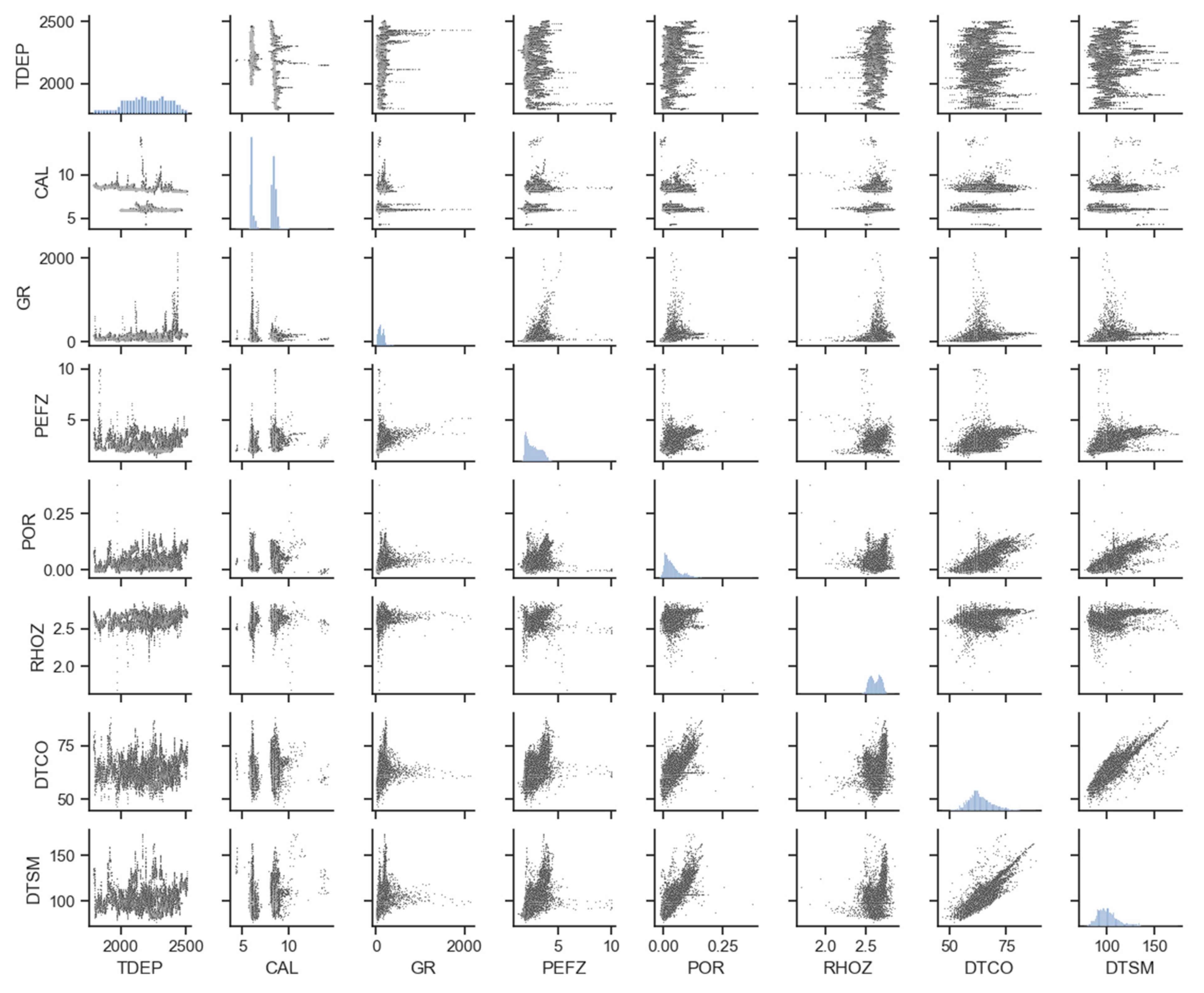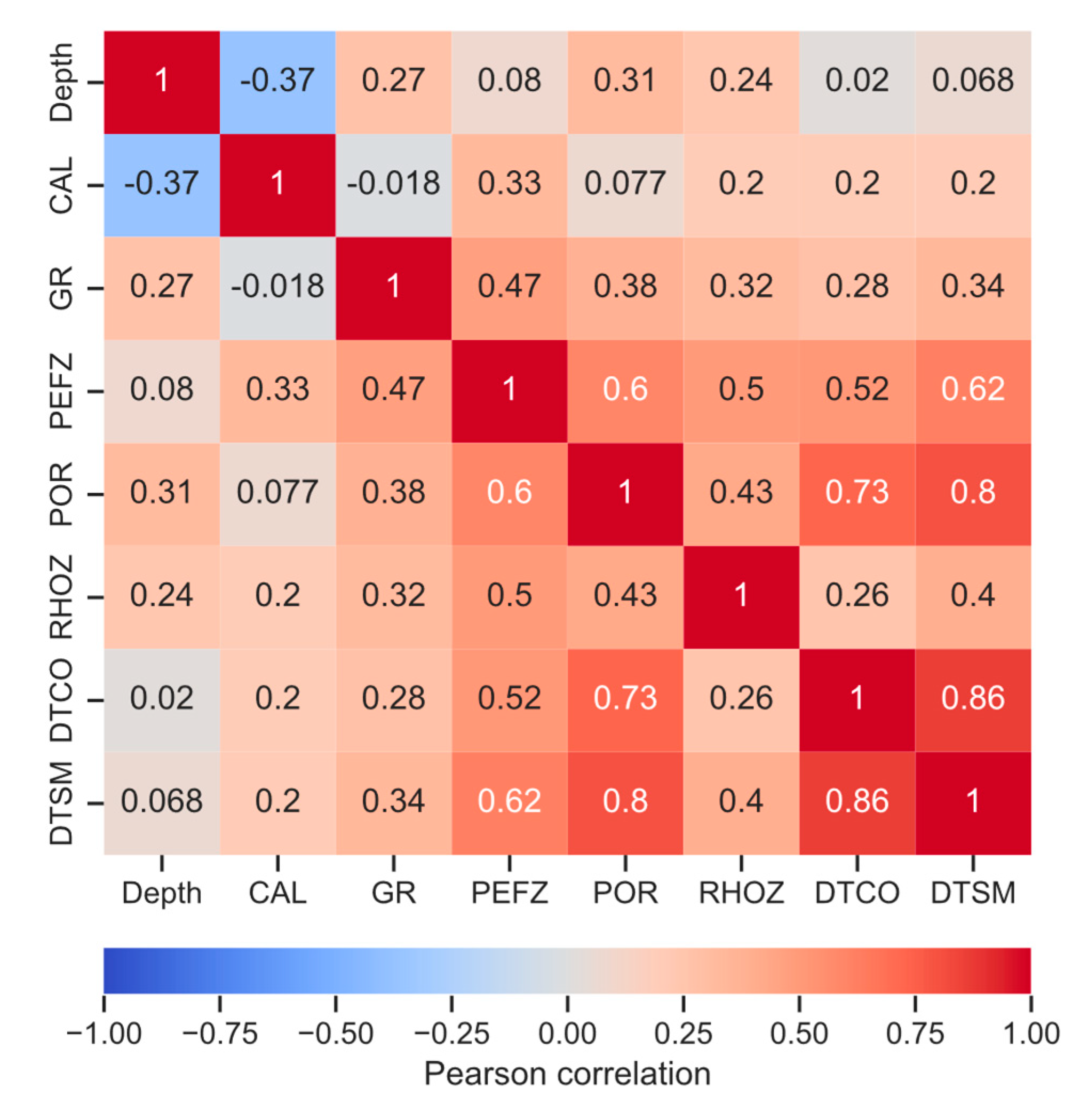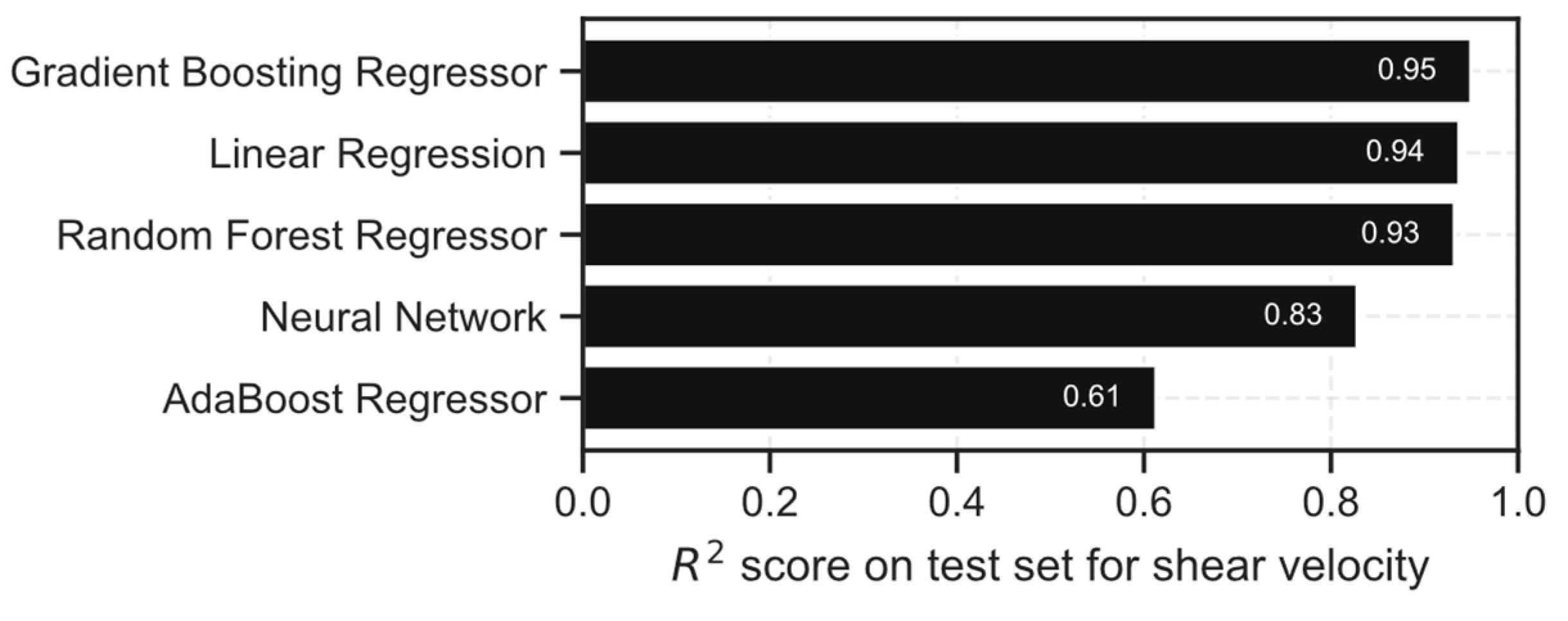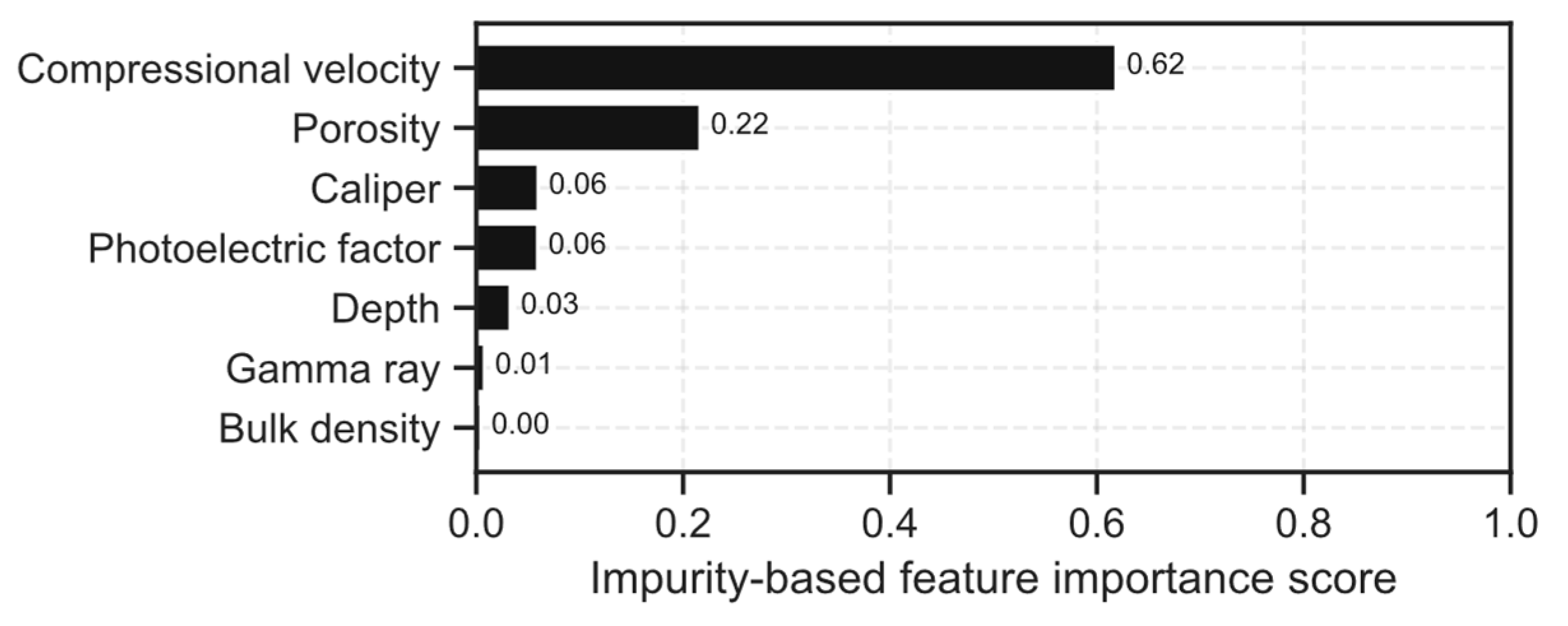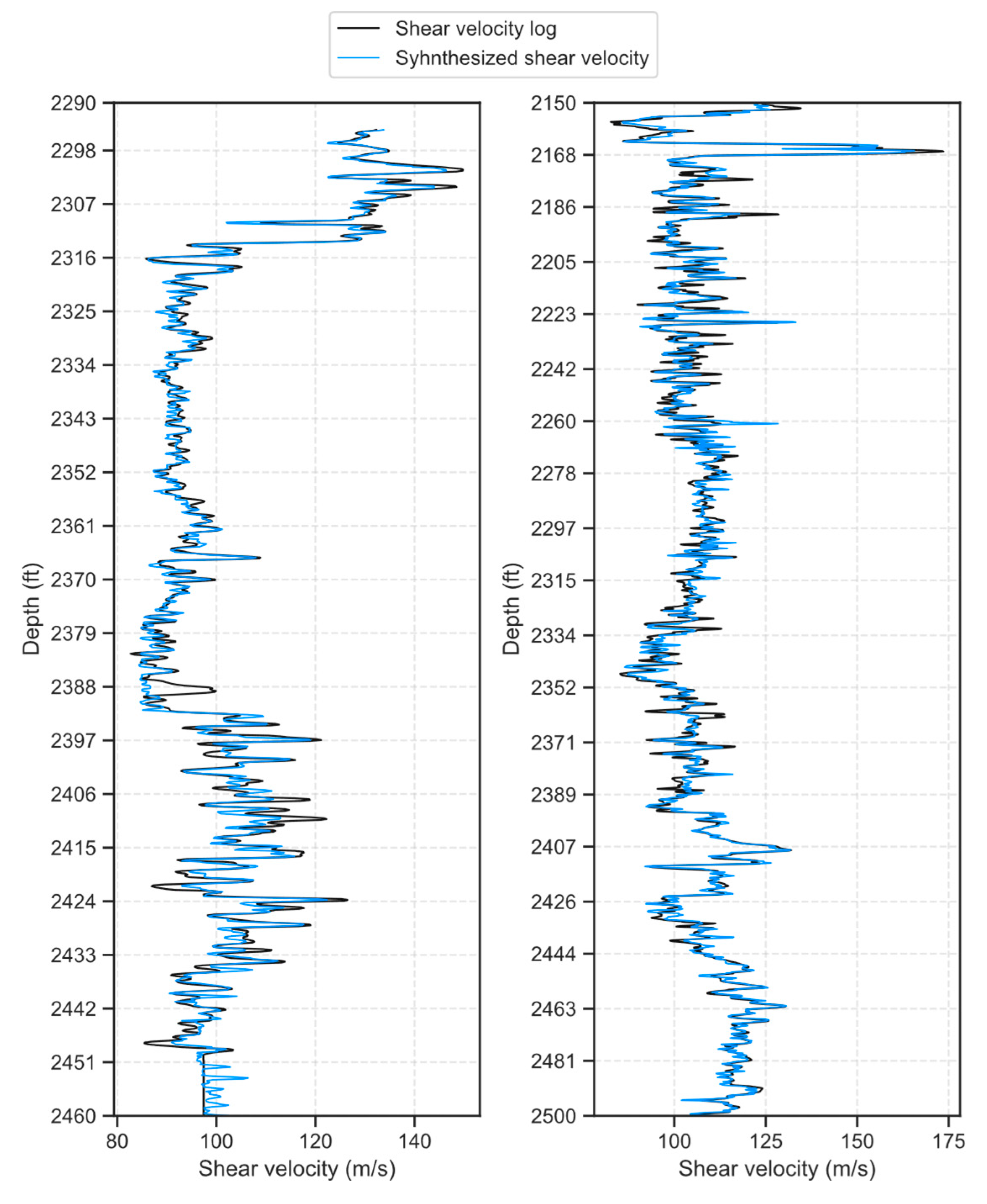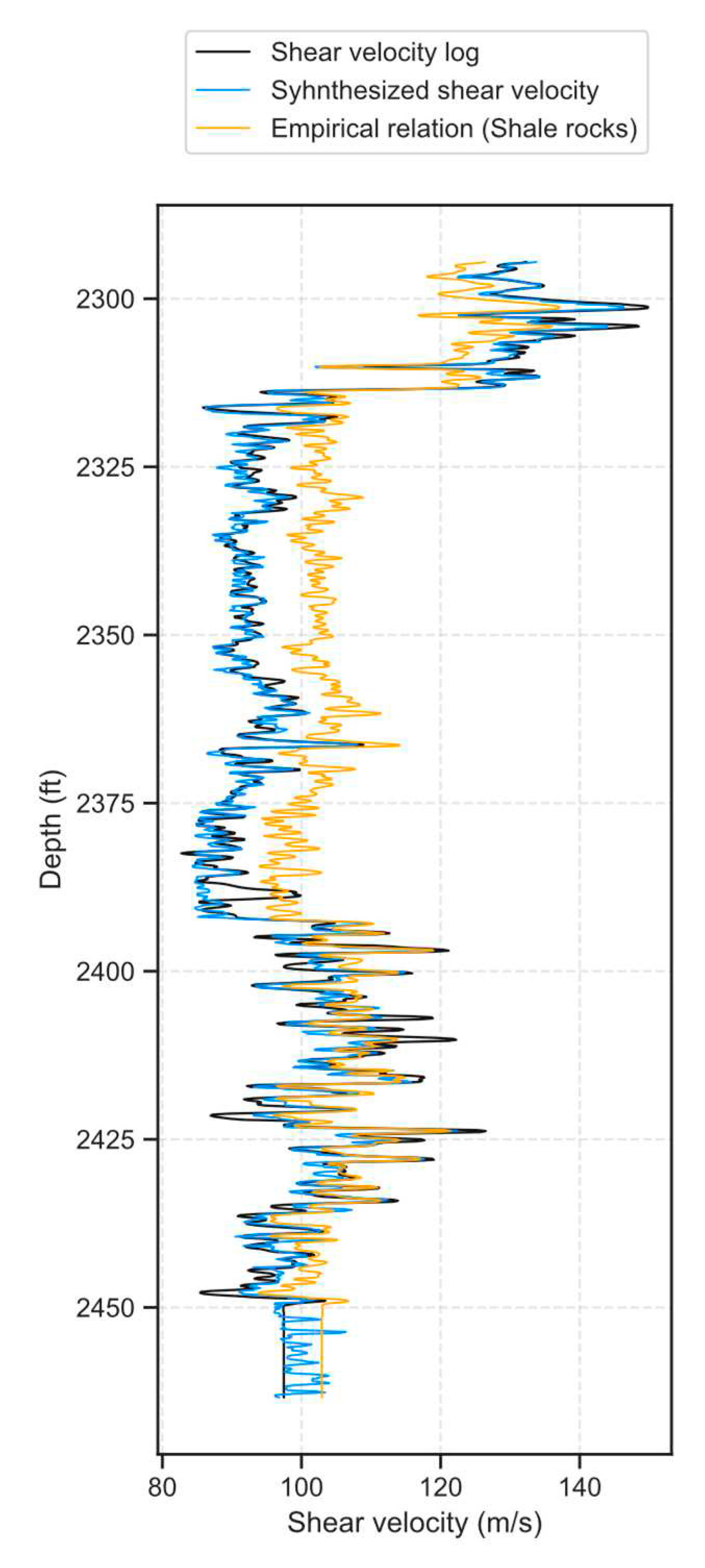Introduction
Accurate characterization of subsurface systems is paramount for efficient exploration, production, and injection for hydrocarbon and geothermal systems (Aihar et al., 2023; Irofti et al., 2023). Shear velocity logs play a pivotal role in providing critical information about the mechanical properties of rock formations (Ifrene et al., 2022), including anisotropy (Irofti et al., 2023), stiffness, shear strength, and seismic wave propagation. The anisotropic medium is another factor that raises the reservoir characterization complexity (Mellal et al., 2023). According to Shawaf et al., (2023), the anisotropic rock mechanical behavior has a direct impact on the stimulation parameters, well trajectory, and well stability. A deep understanding of the elastic properties is essential for an accurate and representative reservoir characterization which directly contributes to the success of field development projects and future decisions. However, acquiring shear velocity logs through conventional methods is often a costly and time-consuming process (Chaikine et al., 2020). The need for drilling additional wells solely for shear velocity measurements can significantly escalate operational expenses, making it challenging to obtain a comprehensive dataset across an entire field or basin (Suleymanov et al., 2022).
To address this challenge, recent research has been focused on exploring innovative approaches to predict shear velocity logs using machine learning (ML) techniques (Zhang et al., 2020). Machine learning algorithms have demonstrated their effectiveness in learning patterns and relationships from well logs (Ifrene et al, 2023), enabling them to make accurate predictions for shear velocity without the need for additional expensive measurements (Suleymanov et al., 2022). By leveraging the abundance of well log data, this approach presents a cost-effective alternative to conventional methods, allowing for the estimation of shear velocity profiles across a broader area without extensive well drilling, besides replacing the use of empirical relationships that often exhibit poor generalization and inaccuracy (Anemangely et al., 2019).
Due to the potential improvement in the shear wave velocity prediction in complex reservoirs, data-driven models, analytical, rock physics and ML models have been used in several studies over the past two decades (Shawaf et al., 2022). One of the recent studies on slowness prediction using ML algorithms was conducted by (Jiang et al., 2022) who compared the shear wave velocity obtained from logging tools with the one obtained using empirical models. The authors then applied a novel method of deep learning (DL) to predict the shear wave velocity in a tight sandstone reservoir and found that the prediction accuracy is higher than the empirical equations (Zhang et al., 2020) tested theoretical, petrophysical, and machine learning models in a complex carbonate reservoir using conventional logs. The results showed that the results of the prediction using deep learning models are more accurate than conventional methods with a correlation coefficient of 95% for DL methods and 73% for the other conventional methods (Miah, 2021) developed data-driven connectionist models using a machine learning approach of least square support vector machine (LSSVM) to develop a correlation that predicts shear wave velocity for old wells drilled in clastic sedimentary rocks. The authors then verified and compared the developed correlation with the existing models using measured data of sandstone formation and found that it exhibits a minimal error and high correlation coefficient of 96%.
On the other hand, machine learning algorithms have proven their efficiency and accurately identify the relationship between non-linear complex phenomena (Hamadi et al., 2023). ML algorithms have better generalization ability and can discover and extract hidden trends and relationships from huge datasets that were previously impossible to explore manually (Suleymanov et al., 2021). Machine learning techniques have been used successfully for a wide range of tasks in the oil and gas industry, from exploration and geophysics applications to production, such as seismic data processing (Karrenbach et al., 2000), ROP prediction (Moran et al., 2010), UCS prediction (Chellal et al. 2023), drilling optimization (Ouadi et al., 2023), water saturation prediction (Mellal et al., 2023), mineralogy prediction (Laalam et al., 2022), stress-dependent porosity and permeability prediction (Ouadi et al., 2022), enhanced oil recovery applications (Chemmakh et al., 2021), and completion design (Laoufi et al., 2022), Therefore, our study seeks to investigate the integration of machine learning and well logs for shear velocity prediction in the Ahnet field, Algeria. The Ahnet field is a naturally fractured reservoir (Irofti et al, 2022), located in a region of significant hydrocarbon potential, and presents an ideal testing ground to explore the practicality and efficiency of this predictive approach. By developing reliable models for shear velocity prediction, we aim to contribute to a deeper understanding of the subsurface properties in the Ahnet field and facilitate more informed decision-making in hydrocarbon exploration and production endeavors.
This paper presents the methodology and results of our research, highlighting the benefits of using machine learning to predict shear velocity logs. The predictive models developed in this study hold the potential to not only reduce exploration costs but also improve the accuracy of reservoir assessments, leading to enhanced oil and gas production in the Ahnet field and potentially serving as a blueprint for similar applications in other geological settings. Ultimately, the findings of this study may have far-reaching implications for the oil and gas industry, fostering more sustainable and economically viable practices for subsurface characterization and resource extraction.
Study Area
The Ahnet Basin is situated within the Southern Algeria region, specifically forming part of the Western province of the Saharan Platform. Its boundaries are defined by the meridians 1° and 3°, as well as the parallels 24° and 27°, encompassing a total area of 50,000 km2 (Kadri and Hacini, 2018).
Geologically, the Ahnet Basin is situated in the Algerian Sahara, specifically to the northwest of the Hoggar massif. This basin occupies a unique geographical position, endowing it with distinct structural characteristics (Mofredj et al., 2019). It is surrounded by several geological features; to the west, the West African Craton forms a remarkably stable and rigid zone that has been stable for over 3 billion years. To the east, the mobile zones of the Hoggar became stable during the Pan-African Orogeny, which took place approximately 550 to 600 million years ago. South of the basin, the stable Mole d'In Ouzzal develops within the basement. In the northern region, the suture zone between the Hoggar and the West African Craton is marked by the folded ridge of Ougartha, oriented in a northwest-southeast direction (Lüning et al., 2004).
During the Paleozoic period, sedimentation in the Ahnet Basin was primarily detrital and occurred in a variety of depositional environments, including continental, marine, glacial, and littoral settings. Emphasis has been placed on comprehensive sedimentological and stratigraphic investigations of select Paleozoic sequences, notably the Cambrian-Ordovician, undertaken by Beuf et al. (1971). The Paleozoic deposits overlie the InfraTassilian unconformity. Below this unconformity, substantial and relatively unmetamorphosed series are occasionally observed, preserved within grabens, representing remnants of pre-Cambrian chains. These specific series, known as the "purple series," were initially identified by Beuf et al. (1971).
The typical stratigraphic sequence of the basin begins at its base with the Cambrian-Ordovician sandstones, which are highly compacted and cemented (Mofredj et al., 2019). The Cambrian-Ordovician series is conventionally subdivided into three units. At the base, coarse to conglomeratic sandstones with oblique stratification are found, deposited in a fluvial environment, and resting unconformably on the Substratum. Moving up to Unit II, the sandstones become finer, and better bedded, and the oblique stratification tends to diminish. Unit III is a clayey-sandy unit with a predominance of clayey facies and fine-grained sandstones characterized by abundant trace fossils known as "tigillites." It is better known as the "upper clayey-sandy" unit and was deposited in a mixed to predominantly marine environment, showing a clear transgressive trend on the Saharan platform scale. Locally, this formation is discordant with Unit II. The Silurian is characterized by a clayey sedimentation that developed in a distinctly marine environment. The radioactive clays at the base of the Silurian are widely recognized throughout the Saharan platform as excellent source rocks and serve as a reliable stratigraphic marker (Kadri and Hacini, 2018). The Devonian period is marked by alternating layers of sandstones and clays, with occasional limestone interbeds. The clays are attributed to a marine environment, while the sandstones were deposited in a littoral setting. Moving upwards in sequence, the Middle Devonian is characterized by deposits with clayey marine facies. Finally, the Carboniferous is a clay-sandy unit that begins with sandstones and transitions to clays towards the top of the sequence.
Figure 1.
Geographical location of Ahnet basin, Algeria (Allaoui et al, 2022).
Figure 1.
Geographical location of Ahnet basin, Algeria (Allaoui et al, 2022).
Figure 2.
Stratigraphic column of Ahnet basin (Allaoui et al, 2022).
Figure 2.
Stratigraphic column of Ahnet basin (Allaoui et al, 2022).
Materials and Methods
Data Collection
The dataset consists of a total of six wells, providing a substantial amount of information with 11,249 data points. To ensure effective model training and evaluation, the dataset is divided into a training set, comprising five wells, encompassing 10,140 data points, and a separate testing set with one well, containing 1,109 data points. This division allows for comprehensive exploration and validation of the machine learning approach in predicting shear velocity from well logs. By utilizing the training data, the machine learning model can learn underlying patterns and relationships between the input well log data and the corresponding shear velocities. Following training, the model's performance will be evaluated on the testing data to assess its generalization capability and its ability to accurately predict shear velocities on unseen data points. Instead of randomly shuffling the data points then splitting them to train and test sets, we opted to reserve one well at a time for testing and use the remaining wells for training to simulate real-world scenarios when we already have data available for whole wells and we want to predict the shear velocity logs for newer wells. This exploratory analysis sets the stage for the subsequent sections of the paper, where the developed machine learning model's results and implications will be discussed and analyzed in detail.
Empirical Methods
In the realm of subsurface exploration, empirical relations have proven to be valuable tools for predicting shear velocity logs from other well log data (Fabricio et al., 2015).These relations leverage the interdependencies between various geophysical parameters to estimate shear velocity, a critical parameter for characterizing rock properties and assessing subsurface formations. By analyzing the correlations between sonic, density, and porosity logs, among others, engineers and geoscientists can establish empirical models that offer reasonably accurate predictions of shear velocity (Sohail & Hawkes, 2020). We can count several empirical correlations for this purpose for various rock formations:
Table 1.
Empirical correlations to shear wave velocity calculation for various rock types.
Table 1.
Empirical correlations to shear wave velocity calculation for various rock types.
| Rock Types |
Empirical Correlations |
Reference |
| Shale rocks |
|
(Castagna et al, 1985) |
| Sandstone rocks |
|
(Han, 1987) |
| Sandstone rocks |
|
(Greenberg & Castagna, 1992) |
| Sedimentary rocks |
|
(Brocher, 2005) |
| Mud-rocks |
|
(Lee, 2013) |
| Sedimentary rocks |
|
(Ojha & Sain, 2014) |
While these empirical relations have proved to be very useful, especially considering the cost of obtaining direct measurements of shear velocity, they are very often unreliable and inaccurate. Furthermore, they are very lacking when it comes to generalization, where several relations need to be developed to account for the various (Jiang et al., 2022). While these relations may have inherent limitations and varying applicability across geological settings, they serve as efficient shortcuts in the absence of direct shear velocity measurements, aiding in the interpretation and understanding of subsurface structures and rock properties during exploration and development endeavors (Fabricio et al., 2015).
Machine Learning Models
Machine learning models can be a valuable tool for prediction of shear velocity from conventional well logs by leveraging their ability to identify complex patterns and relationships within vast datasets (LeCun et al., 2015). Unlike traditional empirical relations, machine learning models excel at capturing intricate nonlinear dependencies and interactions among multiple log measurements. By training on a diverse set of well logs with corresponding shear velocity values, these models can generalize and make accurate predictions for new data. The incorporation of advanced algorithms, such as artificial neural networks, decision trees, or support vector machines, empowers these models to adapt to varying geological conditions and lithologies and optimize their predictions (Bressan et al, 2020). Additionally, machine learning models have the potential to continuously improve and refine their performance as they are exposed to more data, making them versatile and robust tools for enhancing subsurface exploration and reservoir characterization (Liu, 2017).
For this work, we opted to use various machine learning models, namely linear regression, random forest regression, support vector regression, and neural networks. Each of these models offers unique strengths that complement the prediction of shear velocity from conventional well logs. Linear regression provides a simple yet interpretable approach, identifying linear relationships between input logs and shear velocity. Random forest regression excels at handling nonlinearity and interactions between features, offering robust predictions even in the presence of noisy data. Support vector regression leverages the concept of support vectors to create accurate predictions by effectively handling outliers and maximizing the margin between data points. Finally, neural networks, with their deep architecture, can capture highly complex relationships, allowing for exceptional performance in modeling intricate subsurface patterns. By combining these diverse machine learning techniques, we aim to enhance the accuracy and reliability of our predictions and provide valuable insights for geological and reservoir engineering applications.
Linear Regression
A linear regression model is a fundamental statistical method used to analyze the relationship between a dependent variable and one or more independent variables. The goal of this model is to find a linear equation that best fits the data points and can predict the value of the dependent variable based on the values of the independent variables. The equation is represented as , where y is the predicted value, x is the input variable, m is the slope (representing the relationship between the variables), and b is the y-intercept (representing the value of y when x is 0). The model's performance is evaluated using metrics like mean squared error or R2, which indicate how well the model fits the data. Linear regression is widely used in various fields, including economics, finance, and data science, due to its simplicity and interpretability.
Random Forest
Random Forest is an ensemble learning method that combines multiple decision trees to make more accurate predictions. Each decision tree in the forest is built on a random subset of the data and random subsets of features. When a new data point is fed into the model, each tree in the forest predicts an outcome, and the final prediction is determined by majority voting or averaging the individual predictions. Random Forests are powerful and robust algorithms that can handle both classification and regression tasks. They are less prone to overfitting and can handle high-dimensional datasets with complex interactions between features.
Gradient Boosting
Gradient Boosting is another ensemble learning technique that builds multiple weak learners (usually decision trees) sequentially, with each subsequent model trying to correct the errors of its predecessor. It works by fitting each tree to the negative gradient of the loss function with respect to the previous predictions. This process leads to increasingly accurate predictions with each iteration. Gradient Boosting is highly effective in handling complex data patterns and often outperforms other algorithms, but it may require careful tuning to prevent overfitting.
AdaBoost
AdaBoost is an ensemble learning method that iteratively combines weak classifiers (e.g., decision stumps) to create a strong learner. It assigns higher weights to misclassified samples in each iteration, making the subsequent weak classifiers focus on those samples. In this way, AdaBoost adapts and improves its performance over time by giving more emphasis to the challenging examples. The final prediction is made by combining the individual weak classifiers, where the stronger classifiers have more influence. AdaBoost is particularly useful for binary classification problems and is less prone to overfitting.
Artificial Neural Networks
Neural Networks are a class of machine learning models inspired by the structure and functioning of the human brain. They consist of interconnected nodes (neurons) organized into layers: input layer, hidden layers, and output layer. Each neuron applies a mathematical transformation to its input and passes the result to the next layer. Neural networks can learn complex patterns and relationships in data, making them suitable for various tasks, including image recognition, natural language processing, and time-series prediction. However, training neural networks requires a large amount of data and computational resources, and they are susceptible to overfitting, which demands careful regularization technique.
Figure 1.
Typical structure of a fully connected neural network (Latrach, 2023).
Figure 1.
Typical structure of a fully connected neural network (Latrach, 2023).
Results and Discussion
The following is a discussion of the findings of this work. Starting by an exploratory data analysis, statistical properties of the dataset, discussion of the various machine learning models used for this study, and the prediction results.
Exploratory Data Analysis
As for any data-driven workflow, we start this work with an exploratory data analysis (EDA). This crucial step involves thoroughly examining the raw well log data to gain insights into its distribution, quality, and potential outliers. We visualize the relationships between different log measurements and shear velocity using plots and graphs, identifying any patterns or correlations that may guide our model selection and feature engineering process. During EDA, we also check for missing data, perform data imputation if necessary, and assess the overall data integrity to ensure the reliability of our subsequent analyses. Additionally, we conduct statistical tests and feature importance analysis to determine which logs have the most significant impact on predicting shear velocity. The findings from this exploratory phase lay the foundation for selecting appropriate machine learning models, preprocessing the data, and ultimately building a robust predictive model for shear velocity estimation.
As a starter, we begin by presenting some statistics of the dataset on
Table 2.
From the pair plot in Figure 2, we can see that most of the logs exhibit a normal distribution, for the exception of density and caliper that tend to follow a bimodal distribution. The correlation analysis (
Figures 3) between shear velocity and various well logs was conducted to uncover potential relationships and dependencies between these geological attributes. The results revealed several noteworthy correlations that provide valuable insights into the subsurface properties. The strongest correlation was found between shear velocity and compressional velocity, with a coefficient of 0.86. This high correlation suggests a strong positive association between the two velocity components, indicative of consistent rock properties within the subsurface. Additionally, a significant positive correlation of 0.8 was observed between shear velocity and porosity, indicating that higher porosity levels tend to correspond to increased shear velocities.
Furthermore, the study identified a moderate positive correlation of 0.62 between shear velocity and the photoelectric factor, suggesting a potential connection between these attributes, though not as strong as the previous relationships. The gamma-ray log displayed a relatively weaker positive correlation of 0.34 with shear velocity, indicating a less pronounced association between these parameters. Similarly, the density log exhibited a modest positive correlation of 0.4 with shear velocity, indicating a potential but moderate relationship.
Figure 2.
Pair plot of the different independent and dependent variables in the dataset. The diagonal represents the distribution of a specific variable.
Figure 2.
Pair plot of the different independent and dependent variables in the dataset. The diagonal represents the distribution of a specific variable.
Figure 3.
Correlation matrix of the variables in the dataset.
Figure 3.
Correlation matrix of the variables in the dataset.
Machine Learning and Empirical Relations Predictions
In this study, various machine learning models were employed to predict shear velocity from well logs, and their respective correlation coefficients were obtained as performance metrics (
Figure 3). The results revealed that the Gradient Boosting Regressor exhibited the highest correlation coefficient of 0.95, indicating a strong positive relationship between the predicted and actual shear velocity values. Following closely, the Linear Regression model demonstrated a correlation coefficient of 0.94, signifying its effectiveness in capturing the underlying patterns within the data. The Random Forest Regressor also yielded promising results, attaining a correlation coefficient of 0.93, showcasing its ability to handle complex relationships and make accurate predictions. While the Neural Networks model displayed a correlation coefficient of 0.83, it still showcased a reasonable performance, demonstrating the potential of deep learning techniques in this context. Lastly, the AdaBoost Regressor achieved a correlation coefficient of 0.61, implying a moderate level of predictive capability. Overall, the findings from this comprehensive analysis shed light on the comparative performance of the different machine learning models in predicting shear velocity from well logs, providing valuable insights for selecting the most suitable model for such predictive tasks.
Figure 4.
R2 scores on the test set for the various implemented machine learning models.
Figure 4.
R2 scores on the test set for the various implemented machine learning models.
The impurity-based feature importance score (
Figure 5) shows that the most influential feature is compressional velocity log, by a score of 0.62. This is an expected result due to the relation between the two velocities, furthermore, many empirical relations rely solely on the compressional velocity log to predict shear velocity. Porosity also has a decent feature importance by a score of 0.22, indicating a moderate feature importance. The remaining features in the dataset had a very modest importance with 0.06 for caliper and photoelectric factor, 0.03 for depth, 0.01 for gamma ray, and 0 for bulk density.
The prediction results from gradient boosting regression are plotted against the ground-truth shear velocity log in
Figure 6. The test was run in two steps, where in each step, a well is reserved for testing while the remaining wells were used for training. The plot shows that predictions are almost identical to the actual shear velocity log in both cases. When evaluating empirical relationships, we found that the best performing model was that of shale rocks, which yielded relatively accurate results, yet it was not on par with those from the gradient boosting regression model (
Figure 7).
This study offers an effective solution for estimating shear slowness in reservoirs where sonic logs are absent, expensive, and challenging to measure. It also establishes a basis for future research, enabling validation and improvement of the proposed workflow. Additionally, the suggested workflow can be extended to predict other well logs. According to Mellal et al., (2023) defining rock types of any reservoir increases the accuracy of the prediction of well logs and petrophysical properties using ML algorithms. Therefore, future research should define rock types and add them to the proposed workflow in this study to increase the accuracy of the predicted shear slowness particularly and well logs in general. Geothermal and hydrogen storage projects require an understanding of the geomechanics properties variation along the targeted formations (Josephs et al., 2023). Therefore, predicting sonic logs using ML algorithms is required for such projects.
Conclusion
In conclusion, shear velocity logs play a crucial role in subsurface exploration and reservoir characterization, providing valuable insights into rock properties and geological structures. However, obtaining direct shear velocity measurements can be expensive and sometimes impractical. Empirical models have traditionally served as useful tools for predicting shear velocity from other well logs. While these models offer simplicity and ease of implementation, they often struggle to capture complex nonlinear relationships and may exhibit limited accuracy across diverse geological settings.
In contrast, machine learning models present a promising alternative, leveraging their ability to identify intricate patterns and interactions within vast datasets. Linear regression provides a straightforward approach, while random forest regression excels at handling nonlinearity and noisy data. Support vector regression effectively deals with outliers, and neural networks, with their deep architecture, can model highly complex relationships.
In our study, the utilization of various machine learning models allowed us to explore a range of techniques to predict shear velocity from conventional well logs. Among these models, artificial neural networks demonstrated exceptional performance, surpassing other methods in accuracy and predictive power. Their ability to learn complex representations and adapt to various geological conditions enabled them to achieve the best results in shear velocity estimation.
A more scientific take on machine learning applications in science and engineering is the emerging technology of physics-informed machine learning (PIML). This approach imposes explicit physical laws into the machine learning model to achieve more physically-sound results. Latrach et al., (2023) reviewed various applications of PIML in the oil and gas industry, and the authors noted the lack of applications in petrophysics and petrophysical data processing. The findings of this study can be further enforced by adopting the PIML approach and regulating the model using explicit physical laws. This will be the goal for our future work.
By embracing machine learning and specifically artificial neural networks, we can make significant strides in overcoming the challenges posed by expensive shear velocity logging. These advanced models enhance our understanding of subsurface formations, enabling more informed decision-making in exploration and reservoir engineering. As technology continues to advance and more data becomes available, further improvements in shear velocity prediction can be expected, providing invaluable contributions to the field of geosciences and the energy industry.
References
- Anemangely, M.; Ramezanzadeh, A.; Amiri, H.; Hoseinpour, S.-A. Machine learning technique for the prediction of shear wave velocity using petrophysical logs. J. Pet. Sci. Eng. 2018, 174, 306–327. [CrossRef]
- Aihar, A., Bouabdallah, N., Ifrene, G., & Irofti, D. Comparing Fishbone Drilling and Hydraulic Fracturing in Ultra-Low Permeability Geothermal Reservoirs. 2023.
- Allaoui, A.; Belksier, M.S.; Ameur-Zaimeche, O.; Kechiched, R.; Remita, A.; Fellah, L.; Lamouri, B.; Habes, S. The lower Silurian black Shales from the Ahnet basin (SW Algerian Saharan platform): a comprehensive mineralogical study and paleoenvironmental implications. Arab. J. Geosci. 2022, 15, 1–19. [CrossRef]
- Beuf, S. GRES DU PALEOZOIQUE INFERIEUR AU SAHARA (Issue 18). editions Technip. 1971.
- Bressan, T.S.; de Souza, M.K.; Girelli, T.J.; Junior, F.C. Evaluation of machine learning methods for lithology classification using geophysical data. Comput. Geosci. 2020, 139, 104475. [CrossRef]
- Brocher, T.M. Empirical Relations between Elastic Wavespeeds and Density in the Earth's Crust. Bull. Seism. Soc. Am. 2005, 95, 2081–2092. [CrossRef]
- Castagna et al. Relationships between compressional-wave and shear-wave velocities in clastic silicate rocks. 1985, 50, 571-581.
- Chaikine, I. A., Ian, S. ; & Gates, D. A New Machine Learning Procedure to Generate Highly Accurate Synthetic Shear Sonic Logs in Unconventional Reservoirs. 2020. http://onepetro.org/SPEATCE/proceedings-pdf/20ATCE/3-20ATCE/D031S027R007/2372201/spe-201453-ms.pdf/1.
- Chellal, H. A. K., Egenhoff, S., Latrach, A., & Bakelli, O. Machine Learning Based Predictive Models for UCS and Young’s Modulus of the Dakota Sand Using Schmidt Hammer Rebound. In All Days. 57th U.S. Rock Mechanics/Geomechanics Symposium. ARMA. 2023. [CrossRef]
- Chemmakh, A., Merzoug, A., Ouadi, H., Ladmia, A., & Rasouli, V. Machine Learning Predictive Models to Estimate the Minimum Miscibility Pressure of CO2-Oil System. In Day 3 Wed, November 17, 2021. Abu Dhabi International Petroleum Exhibition & Conference. SPE. 2021. [CrossRef]
- Fabricio, O. A. A., Carlosl F. Beneduzi, Tiagol B. Rossi, & Carlosl E. Seabra. Shear Wave Velocity Estimation in slow siliciclastic formations using empirical models. 2015.
- Greenberg, M. L., & Castagna, J. P. SHEAR-WAVE VELOCITY ESTIMATION IN POROUS ROCKS: THEORETICAL FORMULATION, PRELIMINARY VERIFICATION AND APPLICATIONS. Geophysical Prospecting 1992, 40, 195–209. [CrossRef]
- Han, D. Effects of porosity and clay content on acoustic properties of sandstones and unconsolidated sediments. Stanford University. 1987.
- Hamadi, M.; El Mehadji, T.; Laalam, A.; Zeraibi, N.; Tomomewo, O.S.; Ouadi, H.; Dehdouh, A. Prediction of Key Parameters in the Design of CO2 Miscible Injection via the Application of Machine Learning Algorithms. Eng 2023, 4, 1905-1932. [CrossRef]
- Irofti, D., Ifrene, G., Cheddad, F. A., & Djemai, S. PS Integrating Borehole Imaging and Full Waveform Dipole Sonic Data to Estimate Fracture Porosity in Tight Formations: A Workflow for Accurate Characterization of Natural Fractures.
- Irofti, D., Ifrene, G. E., Aihar, A., Bouabdallah, N., Khouissat, A., & Djemai, S. Characterization of a Tight Gas Reservoir Using the Integration of Electrofacies and Fracture Aperture, Ahnet, Algeria. In 57th US Rock Mechanics/Geomechanics Symposium. OnePetro. 2023.
- Irofti, D., Ifrene, G. E., Pu, H., & Djemai, S. A Multiscale Approach to Investigate Hydraulic Attributes of Natural Fracture Networks in Two Tight Sandstone Fields, Ahnet, Algeria. In ARMA US Rock Mechanics/Geomechanics Symposium (pp. ARMA-2022). ARMA. 2022.
- Ifrene, G. E., Irofti, D., Khetib, Y., & Rasouli, V. Shear Waves Anisotropy and Image Logs Integration for Improved Fracture Characterization. In ARMA US Rock Mechanics/Geomechanics Symposium (pp. ARMA-2022). ARMA. 2022.
- Ifrene, G., Irofti, D., Ni, R., Egenhoff, S., & Pothana, P. New Insights into Fracture Porosity Estimations Using Machine Learning and Advanced Logging Tools. Fuels 2023, 4, 333-353.
- Jiang, R., Ji, Z., Mo, W., Wang, S., Zhang, M., Yin, W., Wang, Z., Lin, Y., Wang, X., & Ashraf, U. A Novel Method of Deep Learning for Shear Velocity Prediction in a Tight Sandstone Reservoir. Energies, 2022, 15. [CrossRef]
- Josephs, R. E., Porlles, J., Tomomewo, O. S., Gyimah, E., and F. Ebere. "Geo-Mechanical Characterization of a Well to Store Hydrogen." Paper presented at the 57th U.S. Rock Mechanics/Geomechanics Symposium, Atlanta, Georgia, USA, June 2023. [CrossRef]
- Kadri, M. M., & Hacini, M. Preliminary Reservoirs Characterizations of Silurian Shale, Case of Ahnet Basin, Southern Algeria. International Journal of Latest Research in Engineering and Management"(IJLREM) ISSN, 2018, 2456-0766.
- Karrenbach, M., Essenreiter, R., & Treitel, S. Multiple attenuation with attribute-based neural networks. In SEG Technical Program Expanded Abstracts 2000. SEG Technical Program Expanded Abstracts 2000; Society of Exploration Geophysicists: 2000. [CrossRef]
- Lee, M. W. Comparison of Methods for Predicting Shear-Wave Velocities of Unconsolidated Shallow Sediments in the Gulf of Mexico. 2013. http://pubs.usgs.gov/sir/2013/5141/.
- Lüning, S.; Wendt, J.; Belka, Z.; Kaufmann, B. Temporal–spatial reconstruction of the early Frasnian (Late Devonian) anoxia in NW Africa: new field data from the Ahnet Basin (Algeria). Sediment. Geol. 2004, 163, 237–264. [CrossRef]
- Latrach, A., Malki, M. L., Morales, M., Mehana, M., & Rabiei, M. A Critical Review of Physics-Informed Machine Learning Applications in Subsurface Energy Systems (Version 1). arXiv 2023. [CrossRef]
- Latrach, A. Application of Deep Learning for Predictive Maintenance of Oilfield Equipment. arXiv 2023. [CrossRef]
- Latrach, A., Merzoug, A., Abdelhamid, C., Mellal, I., & Rabiei, M. Identification and Quantification of the Effect of Fracture-Driven Interactions on Production From Parent and Child Wells in Williston Basin. In Proceedings of the 11th Unconventional Resources Technology Conference. Unconventional Resources Technology Conference. American Association of Petroleum Geologists: 2023. [CrossRef]
- Laoufi, H., Megherbi, Z., Zeraibi, N., Merzoug, A., & Ladmia, A. Selection of Sand Control Completion Techniques Using Machine Learning. In All Days. International Geomechanics Symposium. ARMA. 2022. [CrossRef]
- Laalam, A., Boualam, A., Ouadi, H., Djezzar, S., Mellal, I., Bakelli, O., Merzoug, A., Chemmakh, A., Latrach, A., and Berrehal, B. “Application of Machine Learning for Mineralogy Prediction from Well Logs in the Bakken Petroleum System.” 2022 SPE Annual Technical Conference and Exhibition 2022-October(07). 2022. [CrossRef]
- LeCun, Y., Bengio, Y., & Hinton, G. Deep learning. In Nature (Vol. 521, Issue 7553, pp. 436–444). Springer Science and Business Media LLC: 2015. [CrossRef]
- Liu, B. Lifelong machine learning: a paradigm for continuous learning. In Frontiers of Computer Science; Springer Science and Business Media LLC: 2017; Vol. 11, Issue 3, pp. 359–361. [CrossRef]
- Mellal, I., Latrach, A., Rasouli, V., Bakelli, O., Dehdouh, A., & Ouadi, H. Water Saturation Prediction in the Middle Bakken Formation Using Machine Learning. Eng 2023, 4, 1951–1964. [CrossRef]
- Mellal, I., Malki, M., Latrach, A., Ameur-Zaimech, O., & Bakelli, O. Multiscale Formation Evaluation and Rock Types Identification in The Middle Bakken Formation. SPWLA 64 Th Annual Logging Symposium. 2023. [CrossRef]
- Mellal, I., Rasouli, V., Dehdouh, A., Letrache, A., Abdelhamid, C., Malki, M. L., and O. Bakelli. Formation Evaluation Challenges of Tight and Shale Reservoirs. A Case Study of the Bakken Petroleum System. Paper presented at the 57th U.S. Rock Mechanics/Geomechanics Symposium, Atlanta, Georgia, USA, June 2023. [CrossRef]
- Miah, M. I. Improved prediction of shear wave velocity for clastic sedimentary rocks using hybrid model with core data. Journal of Rock Mechanics and Geotechnical Engineering 2021, 13, 1466–1477. [CrossRef]
- Mofredj, Isma & Nedjari, A. LE DÉVONIEN INFÉRIEUR DE L'AHNET OCCIDENTAL- BLED EL MASS (SAHARA ALGÉRIEN), FORMATIONS ET ENVIRONNEMENTS Isma MOFREDJ* et Ahmed NEDJARI* 2019.
- Moran, D., Ibrahim, H., Purwanto, A., & Osmond, J. Sophisticated ROP Prediction Technologies Based on Neural Network Delivers Accurate Drill Time Results. In All Days. IADC/SPE Asia Pacific Drilling Technology Conference and Exhibition. SPE. 2010. [CrossRef]
- Ojha, M., & Sain, K. Velocity-Porosity and Velocity-Density Relationship for Shallow Sediments in the Kerala-Konkan Basin of Western Indian Margin. In Journal Geological Society Of India 2014, 84.
- Ouadi, H.; Mishani, S.; Rasouli, V. Applications of Underbalanced Fishbone Drilling for Improved Recovery and Reduced Carbon Footprint in Unconventional Plays. Pet. Petrochem. Eng. J. 2023, 7, 1–15. Available online: https://medwinpublishers.com/PPEJ/applications-of-underbalanced-fishbone-drilling-for-improved-recovery-and-reduced-carbon-footprint-in-unconventional-plays.pdf.
- Ouadi, H., Mellal, I., Chemmakh, A., Djezzar, S., Boualam, A., Merzoug, A., Laalem, A., Mouedden, N., Khetib, Y., and Rasouli, V. “New Approach for Stress-Dependent Permeability and Porosity Response in the Bakken Formation.” 2022 SPE Annual Technical Conference and Exhibition 2022-Octob. 2022. [CrossRef]
- Shawaf, A.; Rasouli, V.; Dehdouh, A. The Impact of Formation Anisotropy and Stresses on Fractural Geometry—A Case Study in Jafurah’s Tuwaiq Mountain Formation (TMF), Saudi Arabia. Processes 2023, 11, 1545. [CrossRef]
- Shawaf, A.; Rasouli, V.; Dehdouh, A. Applications of Differential Effective Medium (DEM)-Driven Correlations to Estimate Elastic Properties of Jafurah Tuwaiq Mountain Formation (TMF). Processes 2023, 11, 1643. [CrossRef]
- Sohail, G. M., & Hawkes, C. D. An evaluation of empirical and rock physics models to estimate shear wave velocity in a potential shale gas reservoir using wireline logs. Journal of Petroleum Science and Engineering 2020, 185. [CrossRef]
- Suleymanov, V., Gamal, H., Elkatatny, S., Glatz, G., & Abdulraheem, A. Machine Learning Models for Acoustic Data Prediction During Drilling Composite Lithology Formations. Journal of Energy Resources Technology, Transactions of the ASME 2022, 144. [CrossRef]
- Suleymanov, V., Gamal, H., Glatz, G., Elkatatny, S., Abdulraheem, A., & Fahd, K. Real-Time Prediction for Sonic Slowness Logs from Surface Drilling Data Using Machine Learning Techniques. 2021. http://onepetro.org/SPECTCE/proceedings-pdf/21CTC/2-21CTC/D021S008R001/2499088/spe-207000-ms.pdf/1.
- Zhang, Y., Zhong, H. R., Wu, Z. Y., Zhou, H., & Ma, Q. Y. Improvement of petrophysical workflow for shear wave velocity prediction based on machine learning methods for complex carbonate reservoirs. Journal of Petroleum Science and Engineering, 2020, 192. [CrossRef]
|
Disclaimer/Publisher’s Note: The statements, opinions and data contained in all publications are solely those of the individual author(s) and contributor(s) and not of MDPI and/or the editor(s). MDPI and/or the editor(s) disclaim responsibility for any injury to people or property resulting from any ideas, methods, instructions or products referred to in the content. |
© 2023 by the authors. Licensee MDPI, Basel, Switzerland. This article is an open access article distributed under the terms and conditions of the Creative Commons Attribution (CC BY) license (http://creativecommons.org/licenses/by/4.0/).
